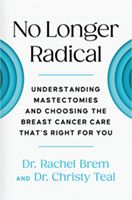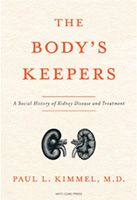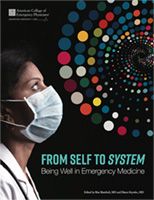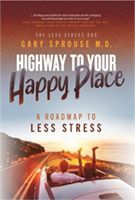
Rachel Brem, MD, professor of radiology at GW SMHS and director of the GW Medical Faculty Associates (GW MFA) Breast Imaging and Intervention Center, and Christine Teal, MD, associate professor of surgery at GW SMHS and director of the Breast Care Center at the GW MFA, recently collaborated on a book about the breast cancer treatment experience, “No Longer Radical: Understanding Mastectomies and Choosing the Breast Cancer Care that’s Right for You.” The book offers practical, comprehensive, and compassionate information, empowering readers to make their best breast cancer care decisions.

Paul L. Kimmel MD, MACP, FRCP, FASN, Clinical Professor of Medicine Emeritus, and former director of the Division of Renal Diseases and Hypertension at GW SMHS, published, “The Body’s Keepers.” The book describes the history of the treatment of kidney failure by dialysis and transplantation.

Rita A. Manfredi, MD, FACEP, clinical professor of emergency medicine, co-edited From Self to System: Being Well in Emergency Medicine, with Diann Krywko, MD. The 40-chapter text focuses on how health system impact the well-being of health care professionals, and present ways to adapt and stay healthy as they serve patients, communities, and families.

Gary Sprouse, MD ’82, RESD ’85, BS ’78, recently published “Highway to Your Happy Place: A Roadmap to Less Stress.” The book addresses feelings of worry, guilt, regret, boredom, low self-esteem, and being overwhelmed in an easy-to-read format. Each chapter offers a better understanding of the problem and easy-to-use tools to reduce stress.




